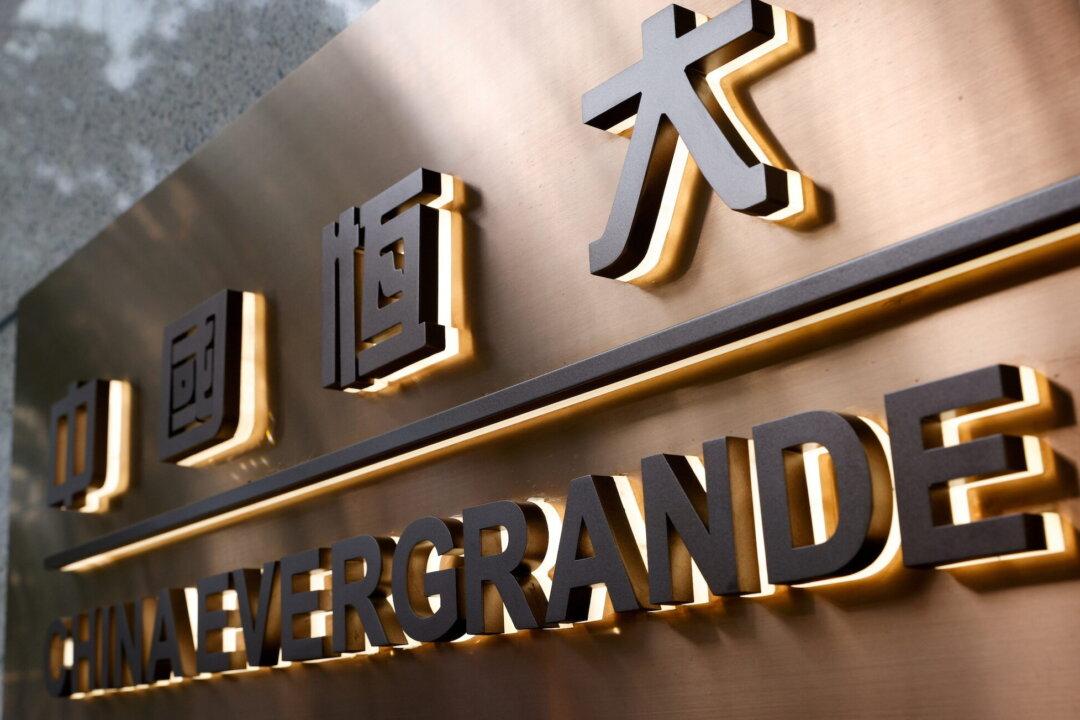HONG KONG—Shares of China Evergrande Group tumbled on Thursday after the embattled real estate developer did not pay offshore coupons due earlier this week.
Evergrande, whose $19 billion in international bonds are in cross-default after missing a deadline to pay coupons earlier this month, had new coupon payments worth $255 million due on Tuesday for its June 2023 and 2025 notes.





